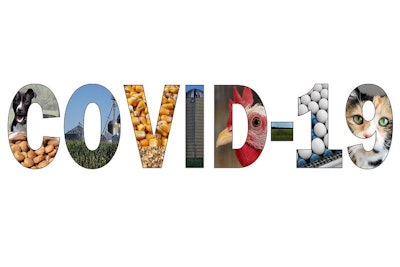
A One Health research project could result in more effective preventative measures against both COVID-19 in humans and poultry coronaviruses.
“We modified certain techniques that we use in the poultry industry to look for solutions in human medicine,” explained Rodrigo Gallardo, professor in poultry medicine, Department of Population Health and Reproduction at the University of California - Davis School of Veterinary Medicine.
For example, hyperimmunization of breeders is strategy used to protect hens with chicks, he added.
The study, a collaboration between researchers at the University of California – Davis, Stanford University and the University of Technology, Sydney, was recently published in the journal Viruses.
How hens help develop COVID-19 treatments
The researchers hyperimmunized hens against SARS-Cov-2, the virus responsible for COVID-19, to create egg-based antibodies to combat the virus.
“We wanted to come up with a massive strategy of generating antibodies that were safe for humans with low immune response and that could topically neutralize viral infections like COVID-19,” Gallardo said.
The hen’s immune system responds to the COVID-19 vaccine by producing a specific type of antibodies called immunoglobins (IgY), proteins that attach to foreign substances. Research has shown that chickens are not susceptible to COVID-19.
The antibodies produced could one day be deployed in a preventative treatment, such as a spray, in people at a high risk of exposure to COVID-19.
Chickens are a popular model for research involving immunoglobins and antibodies in humans and other mammals because they provide a less-expensive and faster way to produce large amounts of antibodies than other models.
What is One Health?
A one health approach to research recognizes that the findings of animal research could benefit human health, and vice versa.
According to the Centers for Disease Control and Prevention (CDC), “One Health is an approach that recognizes that the health of people is closely connected to the health of animals and our shared environment. One Health is not new, but it has become more important in recent years. This is because many factors have changed interactions between people, animals, plants, and our environment.”
Rodrigo plans to use this research to inform future study into poultry coronaviruses like infectious bronchitis.
“It’s been very helpful for me as a poultry researcher of coronaviruses,” he added. “All of this research – which occurred very quickly compared to the research we do in poultry – has nurtured what we’re currently doing in the lab.”

















